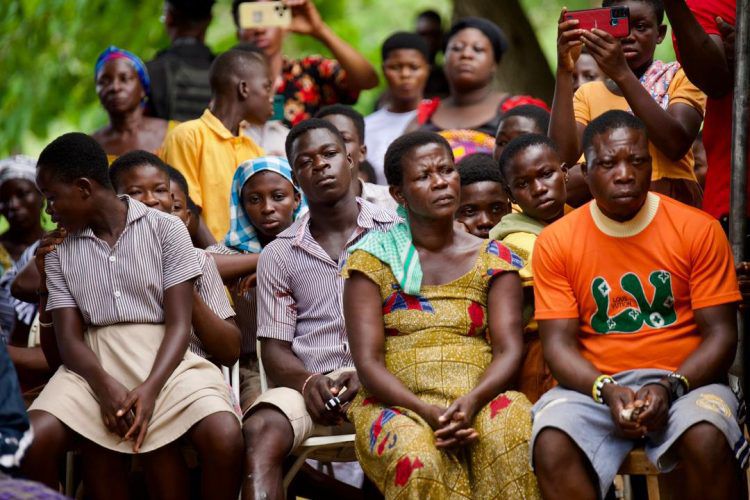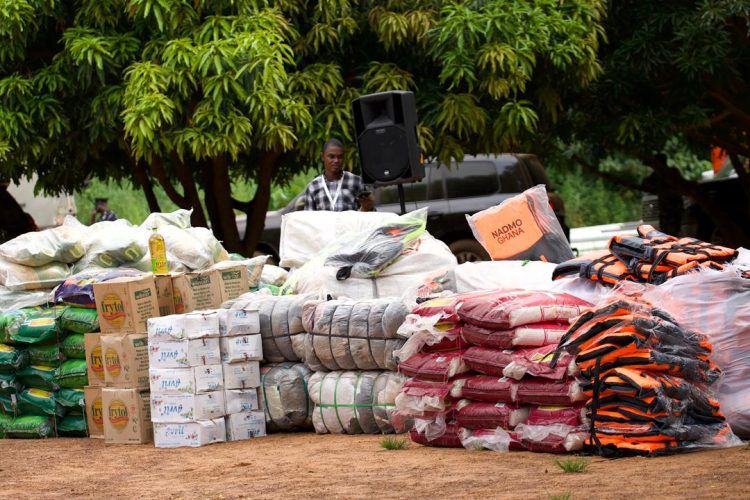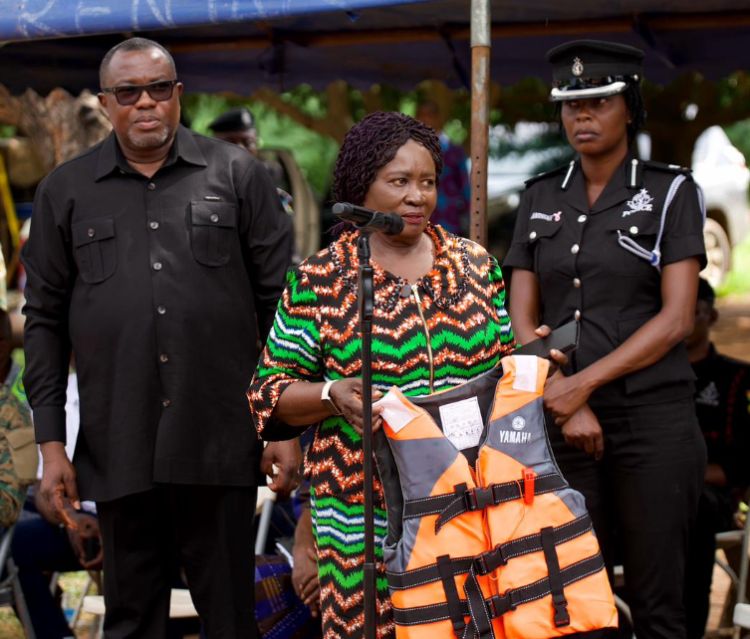Vice President Visits Volta Lake Boat Accident Survivors, Urges Safety Reforms
Kete Krachi, Oti Region – October 2025
Ghana’s Vice President, Professor Naana Jane Opoku-Agyemang, has extended condolences to families impacted by the recent Volta Lake boat disaster, which claimed 16 lives, many of them children. The tragedy occurred near Kete Krachi in the Oti Region, and has raised fresh concerns over water transport safety standards on Ghana’s inland waterways.
During a visit to the affected community, Prof. Opoku-Agyemang donated relief items including life jackets, cooking oil, bar soap, and cash support, while calling for greater adherence to safety protocols to prevent future incidents.
Water transportation remains a vital mode of travel and trade for communities living along Lake Volta, which spans parts of the Volta, Oti, and Northern regions. However, recurring accidents involving canoes and boats have become a persistent threat to lives, often due to preventable factors such as overloading, poor vessel maintenance, and lack of life jackets.
This latest incident not only exposes the fragile nature of Ghana’s inland transport system, but also underscores the urgent need for stronger enforcement of marine safety regulations.

According to Krachi West Municipal Chief Executive, Prosper Addo, preliminary findings have revealed three major failings:
- The vessel was unseaworthy, with visible leaks;
- The boat was overloaded, carrying more passengers than its safe limit;
- None of the passengers on board were equipped with life jackets.
“These three issues are at the heart of the investigation,” Mr. Addo stated, emphasizing that these conditions significantly contributed to the high number of fatalities.
Prof. Opoku-Agyemang’s visit to the victims’ families was part of a broader government effort to show solidarity and deliver immediate relief. She assured the local community that steps would be taken to improve safety measures on Lake Volta and other major water bodies.
“Such tragedies are avoidable,” she said. “We must collectively prioritise the safety of our citizens, especially where water transport is a daily necessity.”
In addition to distributing supplies, the Vice President reiterated the importance of life jacket use, and hinted at future policy interventions that could enhance safety monitoring.

Tragic incidents on Ghana’s lakes and rivers are not uncommon. In May 2021, another boat disaster on the Oti River claimed five lives, while in 2022, a canoe accident on Lake Volta near Dzemeni resulted in the deaths of several schoolchildren. These repeated losses have prompted civil society organisations and local leaders to call for:
- Mandatory vessel inspections
- Licensing and training of boat operators
- Distribution and enforcement of life jacket use
- Community education on water safety
The Role of the Volta Lake Transport Company and Local Assemblies
Although the Volta Lake Transport Company (VLTC) operates formal ferry and barge services, many passengers rely on informal operators using wooden canoes and private boats, especially in remote areas. These informal services often lack regulation, making accidents more likely.
Local assemblies, including Krachi West, have been urged to establish local task forces to oversee safety enforcement, particularly during high-traffic seasons like market days and school openings.

As Ghana’s population grows and lakeside communities expand, so too will the demand for water transportation. Without decisive policy changes, experts warn that the cycle of preventable tragedies may continue.
For now, affected families in Kete Krachi are mourning their loss — a loss that could have been mitigated with stricter oversight and better safety culture.
The Volta Lake accident is not just a local disaster it is a national wake-up call. If Ghana hopes to modernise its inland transport system and protect rural communities, safety cannot be optional. Investments in infrastructure, coupled with enforcement of existing maritime laws, are necessary to ensure that no more lives are lost unnecessarily.
Read also: Ghana Sees Rise in International Air Arrivals in 2025

